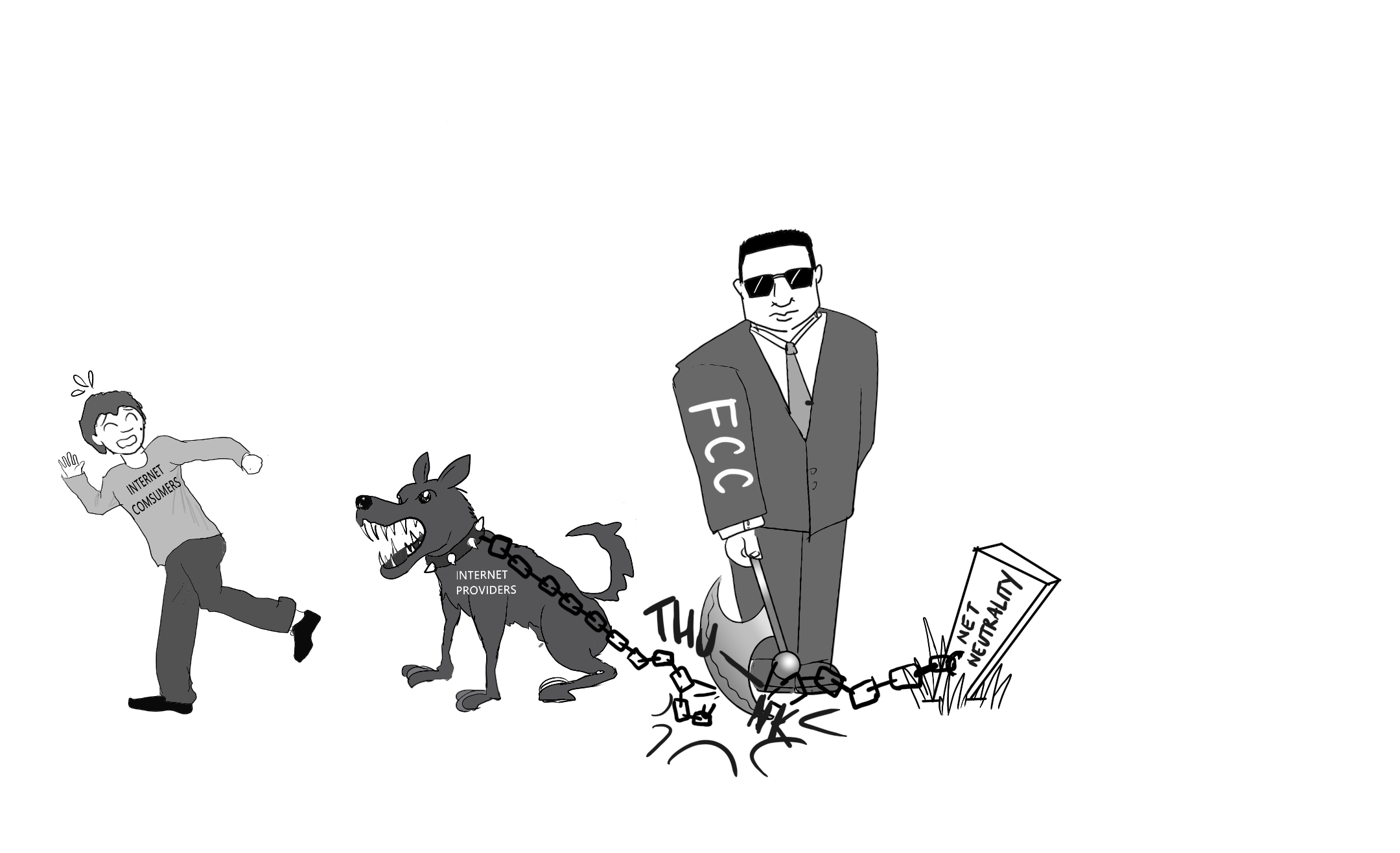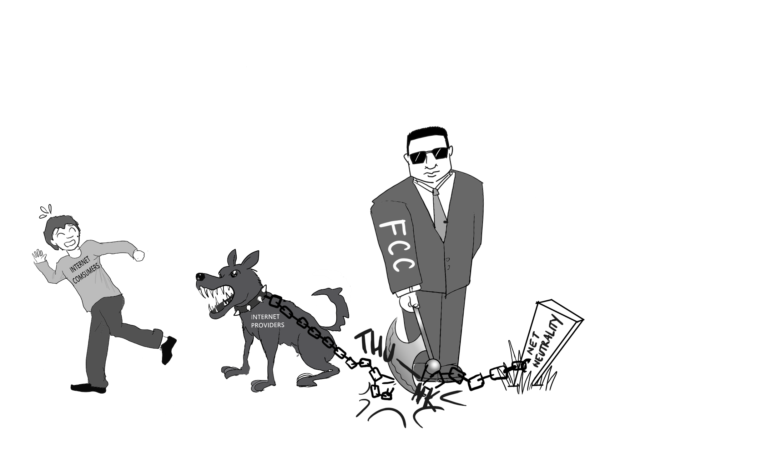

The Federal Communications Commission dismantled net neutrality, the rules that require internet providers, such as Comcast or Xfinity, to give content providers equal access to all consumers, on Dec. 15. The repeal of the law allows internet providers to potentially reshape America’s online experiences by slowing down websites or demanding payments from their customers for faster delivery.
“Net neutrality is the idea that not everyone would have equal access to the internet,” said junior Anisha Tripathi. “So basically internet service provider companies [are] able to charge differently for access to different websites … Let’s say a service provider is affiliated with Bing, that means that your automatic search engine would be Bing and you would probably have to pay extra to use Google.”
A survey taken in 2015 by the University of Delaware’s Center of Political Communication, revealed that, of the 901 people surveyed, 71 percent opposed internet “fast lanes,” or premium service to web streaming operations.
According to Fortune, without net neutrality, there could be consequences for industries, such as medical research and health care services. Furthermore, scientific research would become more difficult as possible collaboration between scientists or doctors across multiple countries would have to abide by different sets of internet rules.
In Feb. 2015, the FCC approved the policy of net neutrality by a 3-2 vote. The Obama administration passed the rules as a protective measure as Americans began to use technological devices as a new communication platform. The intentions of net neutrality were to make sure younger, smaller companies and media companies could sell their goods and distribute information without restrictions from broadband companies.
Social science teacher Jon Felder said that modern politics has been dominated by partisan decision, and the net neutrality vote was no exception.
“The conservative commissioners voted one way and the liberal commissioners voted the other way,” Felder said. “So, then it is a matter of who has more influence and right now the conservatives just have more influence in general in government.”
According to MapLight analysis, since 2008, three of the largest internet service providers and the cable television industry’s primary trade association, Comcast, AT&T, Verizon and the National Cable & Telecommunications Association, have spent $572 million lobbying the FCC to consider the abolition of net neutrality rules.
However, senior Max Liu, points out that the repeal will promote competition.
“I would say getting rid of the regulation will allow for greater competition in terms of companies that use the service provided by these telecommunications companies,” Liu said. “The companies that are doing well will be able to pay more for it, be able to get faster speeds, which makes sense because those companies are doing well because there are more users and if you speed up those companies’ service then on average the higher used company and the people will get better service.”
At the same time, Liu recognizes a potential disadvantage which the repeal may put smaller companies or startups in.
“Because [smaller, younger companies] will be forced to charge maybe higher prices in order to compete with those bigger companies … it will be harder for [tech] startups to begin,” Liu said. “And because [tech] startups are probably the biggest source of jobs and economic growth now, it might be limiting those factors.”
In regard to the possible effects of internet usage in school, Liu does not think much will be affected.
“Because the sites used in schools are usually well-known, respected sites that probably can afford to pay for the higher service from these telecommunications companies,” Liu said, “I don’t think they will be affected very much.”
A 2017 Consortium for School Networking survey found that 43 percent of K-12 district officials said their systems had only one available internet provider, with the majority of the schools in rural areas. Without net neutrality, these schools’ internet provider could decide to interfere with content flowing to the schools. However, director of Tech Knowledge Fred Campbell reports that if service was throttled by one internet provider, a rival could replace it.
Internet service providers look to maximize their profits and eliminate competitors. Yet with net neutrality, these corporations are legally prevented from blocking or slowing access to services that compete with their own. This way the federal government can regulate common carriers to ensure that everyone is provided with certain basic services without bias.
As Brian Chamberlin, an expert at Huawei Technologies, said in a Fortune article, “Net neutrality, aimed at protecting innovation, would have the unintended consequence of deferring investment in the network on which society increasingly depends. That is an outcome we cannot afford.”
But Chamberlin still believes there should be some degree of internet regulations.
“We need regulations,” he said, “that promote innovation, ensure fair competition, protect consumers, and give the companies that operate the network enough flexibility to support digital services that don’t exist today.”



